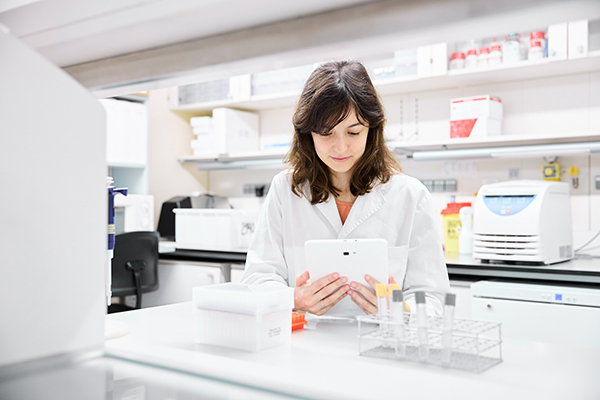
Sandra Sumalla, researcher at the Universidad Internacional Iberoamericana (International Iberoamerican University, UNIB), participates in a study that describes and analyzes the main novel tools that allow the design of human-based nutrition research.
The use of classical methods of cell culture and animal models in nutrition research over the last centuries has been fruitful in the development of knowledge about cellular processes, diet-related mechanisms and various human diseases. However, extrapolating findings from these models to humans poses a critical challenge. This has led to a high proportion of failures in the implementation of drug candidates obtained from preclinical studies and clinical practices.
The most commonly used in vitro models for nutritional research and for food safety assessment are based on monolayer, static, animal or human cell cultures or cocultures, but cannot appropriately model in vivo human situations and mimic systemic responses.
Despite the high genetic similarity between many laboratory animals and humans, animal models are often poor predictors of human health effects and pathophysiological processes. Consequently, scientists are increasingly questioning current drug development strategies based on these models, recognizing the need to enhance human-centered research in fields such as toxicology and regulatory testing. In addition, there is an increased concern for the suffering of animals used in laboratories and a commitment to explore alternative methods for developing new drugs and products that respect animal dignity.
In recent years, tremendous advances in stem cell culture, three-dimensional (3D) cell culture, sequencing technologies, and computer science have produced a variety of tools and research approaches that offer bold new ways to study human diseases and their responses in a more human-relevant setting. These tools are known as “new approach methodologies” (NAMs), which include human pluripotent stem cells (PSCs) and their derivatives (organoids), dynamic cell cultures and OoC, multi-omics technologies and approaches (transcriptomics, metabolomics and nutrigenomics) derived from global analyses of biological samples and computational models.
The adoption of these NAMs based on human models will not only improve the relevance and reliability of research, but will also allow the reduction or elimination of the use of animals in nutritional studies. However, bias toward animal models remains a major barrier.
Currently, no single NAM taken individually makes an ideal model, however, using them in an integrated or stepwise fashion, combined with observational studies and human intervention would greatly benefit research. Therefore, the aim of the study is to promote the search for other innovative avenues in nutritional research, in order to achieve a paradigm shift towards a more human biology-centered approach, better understand human nutritional pathophysiology, evaluate new food products, and develop more efficient preventive or therapeutic strategies.
If you want to know more about this research, click here.
To read more research, consult the UNIB repository.
The Universidad Internacional Iberoamericana (UNIB) offers several master's degree programs. If you want to know more about them, click here.